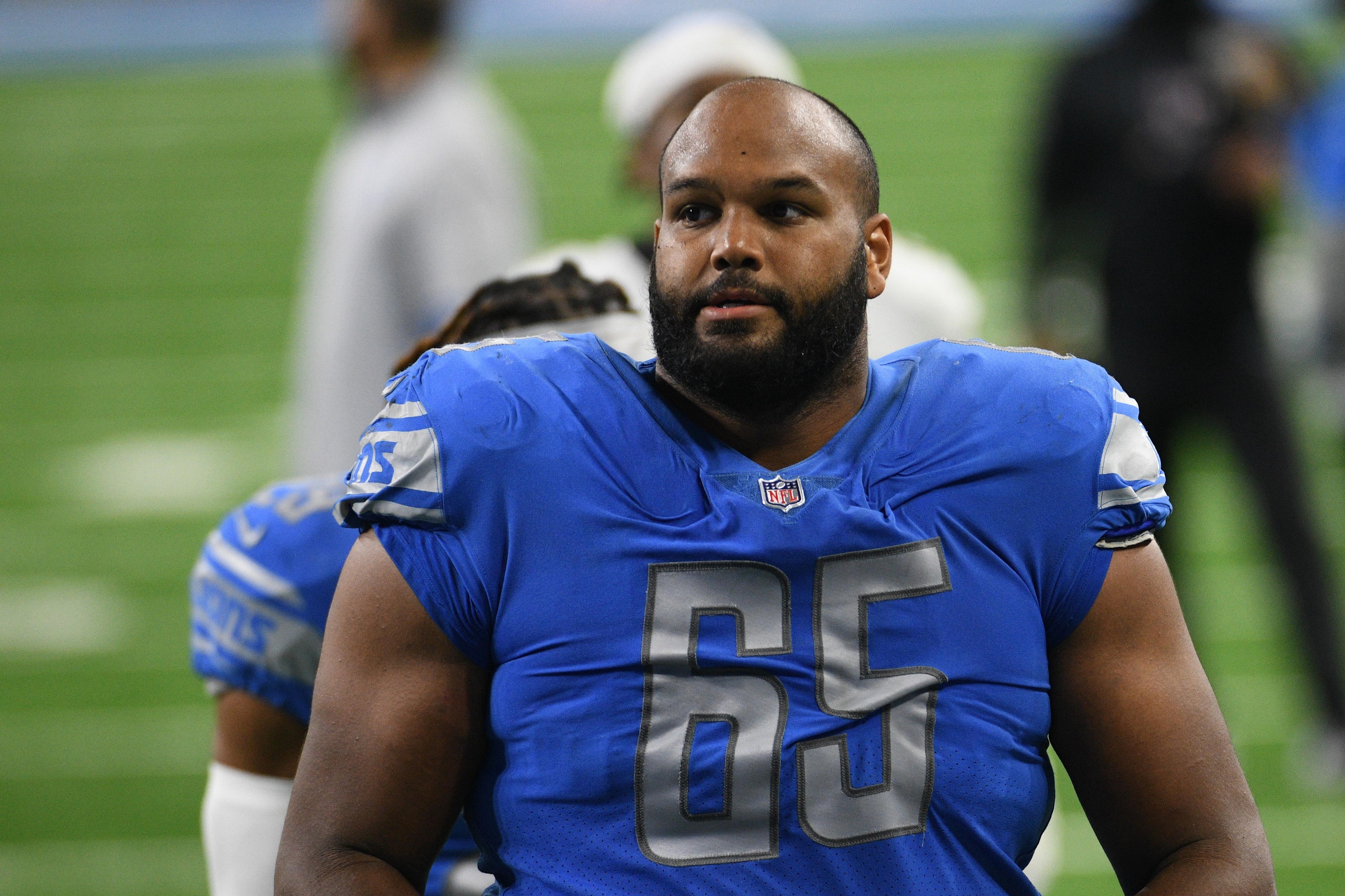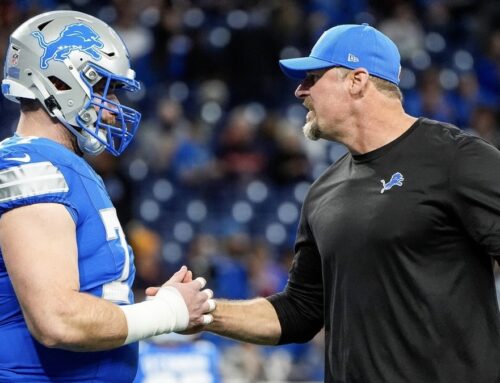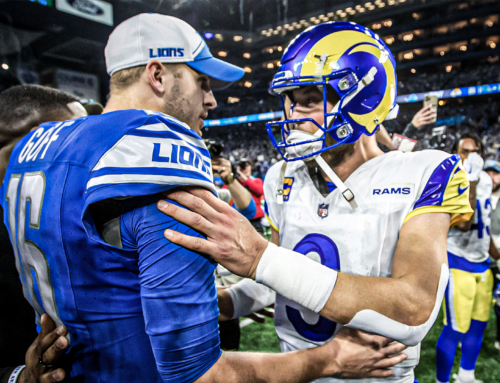Dale Brown of Detroit Urban Survival Training made a visit to Woodward Sports this week, appearing on The Bottom Line. Not only was he an amazing guest, but he was pretty funny too. If you don’t believe me, go check it out on YouTube. Brown’s survival tactics help civilians protect themselves against attacks. A civilian who may need Brown’s class is Tyrell Crosby.
Because he shook the table in a major way this week.
On Tuesday, former Detroit Lions’ offensive lineman caused quite a stir on social media. Before the sun came out for the day, Crosby challenged a rule that prohibits NFL players from betting on games. On the surface, that seems pretty harmless, right? After all, athletes more spoken now. Social media has provided a way for them to do so. However, it wasn’t the fact that Crosby challenged that notion; it was how he did it.
“If as an NFL we aren’t allowed to bet on games (which I fully agree with), why are government officials allowed to buy stocks/stock options?,” questioned Crosby.
Oh snap, son! Immediately after seeing that tweet, I felt like uttering a line that Bill Duke made famous in Menace II Society: “You done ****** up, you know that, don’t you?”
Tyrell Crosby raised a good point.
How are government officials allowed to own stocks and stock options if NFL players (or pro athletes in general) are prohibited from betting on games in their respective leagues?
Now, when you think of athletes betting on games, one name immediately comes to mind. Pete Rose. I mean, how could it not? He’s the poster child of it. If you don’t think so, then do some homework. It’s the main reason he’s not a Hall of Famer. Rose famously bet on his then-team, the Cincinnati Reds, while playing for and managing them.
And here’s the thing. Rose didn’t be on them to lose. In his words, he bet on them to win.
With it being such a gray area, it’s easy to frown upon his actions. After all, how does anyone know he’s being truthful, especially since he denied his actions for years. For Crosby’s point, however, it doesn’t matter. All that Rose did was bet on his best interest in the same fashion that government officials hold stocks and stock options.
A December 2021 report from Business Insider found that “more than 40% of members in Congress, or more than 220 representatives and senators, own individual stocks, collectively holding at least $225 million in stock assets.” Some of the top-owned stocks include Apple, Amazon, Disney, and Microsoft. The report had even more juice, though. It further stated that “some members of Congress held stocks that their committees have direct influence over.”
The example they used was that 15 members sitting on the House and Senate Armed Services committees are also invested in defense contractors.
Not juicy enough for you? How about stocks in companies that make COVID-19 vaccines. In 2020, Pfizer and Johnson & Johnson were the top two pharmaceutical stocks held by Congress. 37 members held Pfizer stock, and 44 held Johnson & Johnson stock.
Now I am not the sharpest knife in the drawer when it comes to politics, laws, and regulations, but I know this is wrong. How are government officials able to do this? How can they own stock in companies that their committees oversee or regulate? Why are they able to profit off their power?
I don’t have all the answers to this. In fact, I am still doing homework to connect more dots. Despite me still putting in the work, Tyrell Crosby raised an interesting question that warrants an answer. Granted, Crosby is not a player of high notoriety. So his words may blow over with time. At that same time, however, they shouldn’t. If members of Congress are able to amass a collective net worth of over $2 billion based on their stock options, players should be able to make some type of coins betting on games. In the end, ask yourself this: why should one group (government officials) benefit financially from their influence while another one (professional athletes) doesn’t?
Follow Kory Woods on Twitter at KoryEWoods.













[…] Op-Ed: Protect Tyrell Crosby at all costs after controversial question […]